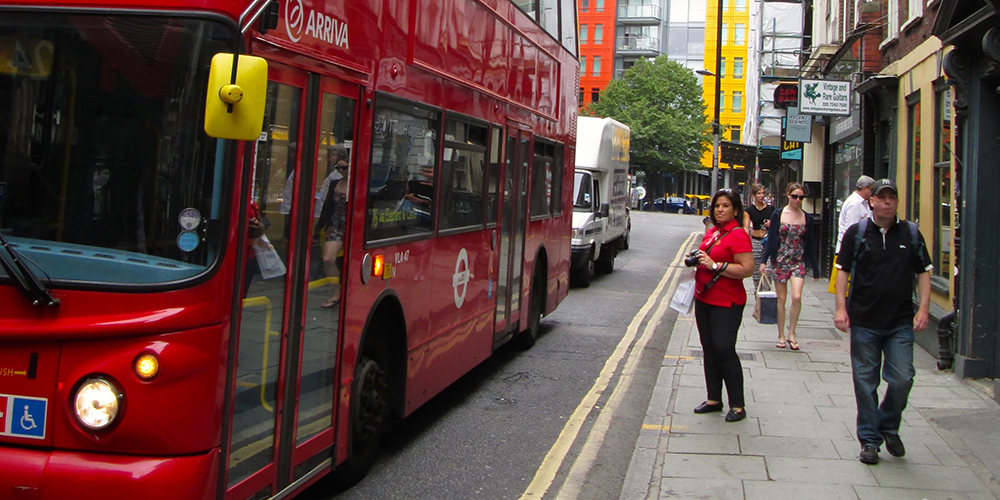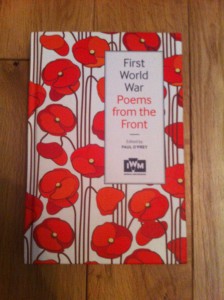Our past two days here have been packed with the reminders of World War I, and while of course I remember studying it in high school, I was shocked to realize how much it actually affected those overseas. On Monday, London will be celebrating the one hundredth anniversary of the declaration of war, and there are reminders of it at nearly every historical site we visit. The Tower of London, upon entry, had a field of red flowers in honor of those who died. Similarly, the Imperial War Museum created a special exhibit, and had many items in the gift shop for purchase and commemoration. Below is a photograph of the book I picked up, a collection of poems from people who experienced the war firsthand. The words are tragically beautiful, but each poem tells an important story.
I didn’t take many pictures at these war museums, and not because I wasn’t allowed to. These experiences are something I don’t need photographs to remember, because I know they will be something I can’t forget. While sad, I do believe that visiting memorials such as these are important to understand history, and the grand impact that these events had. As an avid reader and writer, it is rare that I am at a loss for words, but here I struggle to put my feelings into sentences. There is something vastly different in reading about an event in a textbook, and seeing the artifacts right before your eyes. It becomes so much more real, and yet, there is a strange peace in the aftermath of the exhibits, a quiet understanding that only accompanies a descent from a terrible high.
Here is an excerpt from a poem by Rupert Brooke, who never lived to see his work published:
“There are waters blown by changing winds to laughter
And lit by the rich skies, all day. And after,
Frost, with a gesture, stays the waves that dance
And wandering loveliness. He leaves a white
Unbroken glory, a gathered radiance,
A width, a shining peace, under the night.”

